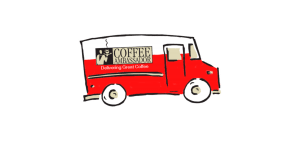Coffee Brewing Tips
1. Start with a Good Quality Coffee.
Poor grade coffee seldom yields a palatable cup. Choose the roast and blend that’s right for you.
2. Use the Grind Recommended for your Equipment.
Too fine a grind produces bitter coffee with too much sediment. Too coarse a grind brews weak, flavorless coffee. The grind determines the length of time the water should be in contact with the coffee while brewing.
3. Use Good Water.
Coffee is 98% water, so use good water to get the best, most flavorful brew. Choose water free of substances that cause objectionable flavor or odor – use filtered or bottled water, or good tasting tap water. Avoid artificially softened or distilled water as they cannot brew good coffee. Remember, what you put in is what you get out.
4. Proper Brewing Time is Critical.
The type of equipment, the method of coffee extraction and the grind of the coffee can vary the proper brewing time from 1 to 8 minutes. Our best suggestion is to follow the manufacturer’s recommendations.
5. Brew and Hold your Coffee at the Proper Temperature.
Coffee should never be boiled. The ideal water temperature for brewing is approximately 200ºF. If it is too cold, flavor and aroma extraction are poor. Too hot and undesirable flavors are brought out. Best flavor maintenance is achieved when brewed coffee is held at approximately 185ºF without variance.
6. Keep it Clean.
Clean and decalcify your brewing equipment regularly to ensure peak flavor performance.
Coffee Trivia
It takes 42 coffee beans to make an espresso.
Flavored coffees are created after the roasting process by applying flavored oils specially created to use on coffee beans.
Coffee was first known in Europe as Arabian Wine.
There are over 100 different types of coffee traded in the world today.
Bach wrote a coffee cantata in 1732.
The Europeans first added chocolate to their coffee in the 1600’s.
Scandinavia has the world’s highest per capita annual coffee consumption, 26.4 pounds.
Iced coffee has been popular in Japan since 1945.
Italians do not drink espresso during meals. It is considered to be a separate event and is given its own time.
Our sense of smell, more than any of our other senses, makes our final judgment on coffee.
Turkish law makes it legal for a woman to divorce her husband if he fails to provide her with her daily quota of coffee.
Australians consume 60% more coffee than tea, a six fold increase since 1940.
Regular coffee drinkers have about 1/3 less asthma symptoms than those of non-coffee drinkers, according to a Harvard researcher who studied 20,000 people.
For reducing wrinkles and improving their skin, the Japanese have been known to bathe in coffee grounds fermented with pineapple pulp.
In Greece and Turkey, the oldest person is almost always served their coffee first.
A mature coffee tree will produce one pound of coffee per growing season.
Hawaii is the only state of the United States in which coffee is commercially grown.
Decaffeinated coffee sales are at their highest in January, due to people’s New Years resolutions.
About half of all American adults have a cup of coffee to start their day.
Instant coffee accounts for 13% of all coffee consumed.
Cappuccino is so named because of the drink’s peak of foam, which resembles the cowl of a Capuchin friar’s habit.
Espresso contains less caffeine than any other roast.
The first European coffee was sold in pharmacies in 1615 as a medicinal remedy.
Coffee consumption surpassed soda consumption in 2007 to become the world’s second most consumed beverage (Water is first!)
Cupping, a coffee tasting technique used to evaluate coffee aroma and flavor profile, can be broken down into three stages: Olfaction (sense of smell), Gustation (coffee flavor attributes), & Mouthfeel (tactile sensation)
Kopi Luwak, the world’s most expensive coffee, is made by foraging for coffee beans excreted by a Wild Sumatran cat, the Asian Palm Civet. Producers of the rare beans argue both the Civet’s selection of the coffee cherries and the fermentation process that occurs in the digestive track improve the flavor profile of the beans.
In 1984, Mars Drinks pioneered the single-cup coffee and tea category, introducing FLAVIA®, the first system for making hot drinks using fresh ground coffee and leaf teas sealed in individual servings.
Want more to find out more about Office Coffee Service?
Call us Monday – Friday, 7:30am to 5:00pm!
(858) 453 – 8584
— Or —

